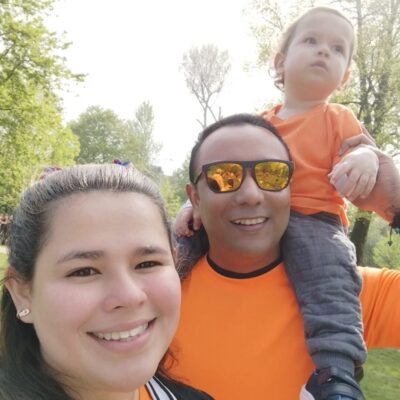
My name is Alexander Fontanilla-Ballesteros, a clinical and health psychologist. For years I worked in Colombia as a university professor, a scientific researcher, and a public servant at the Colombian Institute of Family Welfare (ICBF), intervening in processes to protect and restore the rights of children and adolescents affected by Colombia’s armed conflict. I have always believed that psychology is not practiced only through theory but through humanity: through the ability to listen, to walk beside someone, and to turn pain into understanding.
I come from the north of Colombia, from Cúcuta, a city that wakes beneath a golden light and the scent of freshly ground coffee. It rests between the Andean mountains and the Pamplonita River, where each afternoon the wind drifts down from the peaks carrying ancient whispers. Long before Colombia existed, this region was home to the Motilones-Barí, Chitareros, and Tonchalás—Indigenous peoples who lived in harmony with nature and understood the land as a protective mother. From them, we inherited endurance and reverence for the spoken word.
Near Villa del Rosario, the first Constitution of Colombia was signed in 1821, and the air still carries that sense of beginning. Norte de Santander is a land of mestizaje—Indigenous, Spanish, and touched by the presence of German and Italian merchants who left their marks on coffee, music, and republican architecture. In its homes, bambucos still echo on the tiple, and people dance without haste, as if celebrating the simple fact of still being here. Cúcuta is a border and a crossing point: people speak with a distinct accent, share their bread with strangers, and always have a story waiting to be told.
That is where I come from: a luminous land that teaches you that mixture does not divide but multiplies, and that joy—like coffee—is best when shared.
Reaching the Netherlands with my family was a long road, made of difficult choices. In Colombia, the life of my wife, María Camila Acevedo García, was always bound to the defense of human rights and to movements for peace and social justice. She is a community leader and activist, shaped within progressive youth organizations that dreamed of a fairer nation. Her conviction began at home: her father, Jackson Alexander Acevedo Lizcano, was a lawyer and human rights defender, dedicated to the restitution of land for Indigenous and farming communities in the Sierra Nevada de Santa Marta and the Palomino region of La Guajira, whose lands had been taken by far-right armed groups.
My favourite wisdom quote is from Viktor Frankl:
“When we are no longer able to change a situation, we are challenged to change ourselves.”
Read more about the story of my life:
